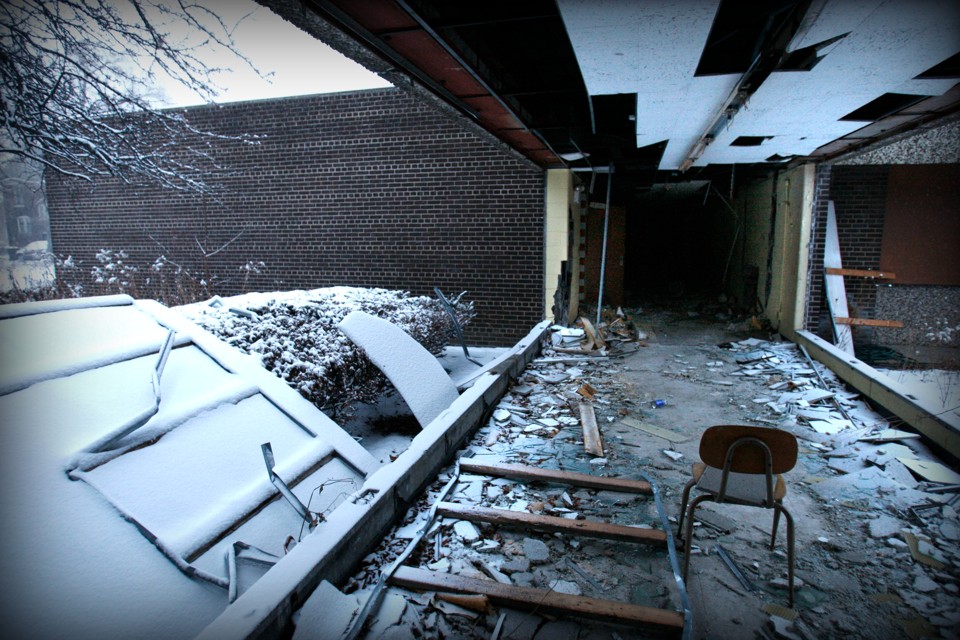Detroit's Educational Catastrophe
Two radically different bills aim overhaul the city’s beleaguered school system. Will the legislation do more harm than good?

One of Detroit's many vacant school buildingsCarlos Osorio / AP
There was no central system to transfer Judah’s records when he moved, and according to Heard the school where he started the 2014-15 academic year had a single teacher assigned to 44 third-graders. Heard was virtually alone in trying to deal with the fact that her boy, then 8, could write only the first two letters of his name.
Heard says she was one of the parents Detroit Public Schools turned to when it needed a strong family showing at a rally or community members to serve on a task force. She was running for the Detroit School Board. But when she needed help, she had nowhere to turn.
“Here I was this advocate for education, and I couldn’t find a place for my son,” she says. “I was crying in the principal’s office and I said, ‘I don’t know what to do.’ The principal said, ‘I don’t either.’”
The scope of the problems plaguing Detroit schools—both traditional district schools and charters—is almost unfathomable. According to the most recent National Assessment of Educational Progress, only 4 percent of Detroit’s eighth-grade students can read and perform math at grade level, the lowest rate among the nation’s big cities. Schools aren’t located where families need them, and campuses often open and close with no coordination or notice. Over the last six years, most schools in the city have either opened or closed—or both. In one neighborhood in the city’s southwest quadrant, home to a large Latino population and a number of industrial zones, a dozen schools opened or closed in the span of 18 months. And when a parent shows up to find a child’s classroom abandoned, good luck finding a new one. There are more than 200 schools with roughly 50 different enrollment processes and almost no standard for performance.
Now, Detroit Public Schools are so far in the red it might not be able to pay teachers through the end of the school year, and two bills are moving through the Michigan legislature aimed at preventing a financial catastrophe. The version passed by the House of Representatives in the early hours of May 5 includes $500 million in debt relief for the district, which would remain under state control. The bill would also impose restrictions on teachers’ ability to bargain contracts and outlaw the strikes over crumbling buildings, among other provisions. Meanwhile, in March the state Senate passed a bill favored by Detroit lawmakers that would return control of the schools to the local, elected school board and create a Detroit Education Commission with the authority to make decisions on things like school closures and minimum acceptable outcomes for charter schools. A conference committee will now attempt to reconcile the radically different bills.
